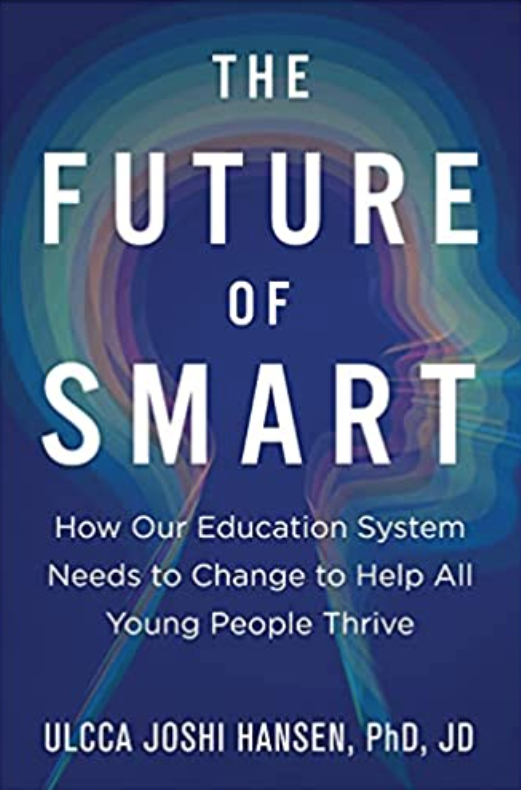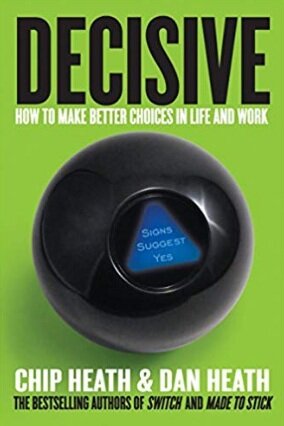Free Content. Subscription Services. Customized Workshops.
To view a distillation click on the book cover or Read More link below the excerpt. Not sure how to use the distillations to improve your practice, learn more about them on our Distillations Explained page.
To find another book, return to the Book Search page.
Mastering Community
Mastering Community is a comprehensive breakdown of everything an organization should think about to foster cohesion. Concepts such as radical candor, kissing up/kicking down, and ruinous empathy are discussed to help frame what helps a community gel.
Making Conversation
In a technological landscape dominated by hand-held devices and social media, some educators and experts are concerned that young people are losing the skills to engage in face-to-face conversation with others. In education, effective conversations are needed when talking to colleagues, students, and parents. Administrators and teachers will benefit from the insights in Making Conversation, since it clearly lays out how to design conversations that move us from speech to action.
The Culture Code
Think a positive culture is luck or charisma driven? Daniel Coyle is here to convince you that it is actually a series of intentional steps that anyone can do. The Culture Code lays out how comedy troupes, Navy SEALS, San Antonio Spurs and jewelry thieves all inadvertently use the same tactics and process to build culture.
Design Thinking for School Leaders
If you’ve ever thought that it would be easier to scrap the current system of education and start over… then Design Thinking for School Leaders was written for you. Gallager and Thordarson show how empathy combines with being an “opportunity seeker”, “experience architect”, “rule breaker”, “producer”, and “storyteller” to create a culture where designing change becomes the norm.
Leading with Gratitude
We know there is a huge gap between how often school leaders feel they appreciate those they lead and how appreciated the average teacher feels. Leading with Gratitude is the antidote! It’s hard to imagine a better book for a school leader to read than this one. It might affirm you are showing gratitude enough and in the right ways or it could transform how you interact with others.
The Case Against Education
Have you ever wanted an economist to break down the traditional perceptions of the value of an education? Well if so… you are in luck! Bryan Caplan does just that in The Case Against Education. Statistical analysis of the human capital vs. signaling theories is done with his theory that education is primarily about “signaling” to the world that someone is suitable for the workplace.
Extreme Ownership
If you have respect for both those who serve in the military and sound business practices, then Extreme Ownership is the book for you. Want war stories? Check. Want to live in the intersection between military tactics/strategies and leading a school? Check. Looking to step up your leadership game by taking responsibility for everything that happens in your school? Triple check!
Conscious Leadership
If Simon Sinek, Carol Dweck, and Brene Brown participated in a weekend book writing blitz, they may well have produced this book. A variety of themes filtered through the lens of business (particularly Whole Foods) gives us an intentional path to Conscious Leadership.
Backable
How good are you at convincing others that you have a good idea? If there’s room for improvement, then Backable is the book for you. You’ll learn why steering into objections, focusing on a single character, and building a backable circle are all critical to convincing others that your ideas have merit.
The Infinite Game
In this book, Simon Sinek draws a line between organizations with short-term thinking/goals and those playing The Infinite Game. He argues that those leading with future generations in mind will create cultures that will weather hard times, inspire others, and build organizations that will thrive.
Fearless Organization
Why do employees stay silent in the workplace when they know something is wrong? In The Fearless Organization, Amy Edmondson explores the idea of psychological safety and argues that establishing a psychologically safe workplace can lead to increased workplace safety, better teamwork, and increased innovations.
What School Could Be
Wonder what’s ailing American schools? Ted Dintersmith spent a year traveling America to find out and highlight solutions. What Schools Could Be is the report from his trip to 50 states, 200 schools, over a hundred community forums, and over a thousand meetings. Innovation from K-12, online, colleges and universities as well as more short-term immersive experiences are all highlighted.
Mindful School Communities
Mindful School Communities by Mason, Rivers Murphy, and Jackson have written a practical guide for school leaders and teachers who wish to create a school environment in which students can develop skills to cope with stress and pressure. By creating schools where teachers and administrators model positive relationships with each other and with the students in their care, students can learn how to care for their own social and emotional well-being which can better help students develop academic skills.
The Future of Smart
Have you ever wondered why we offer a similar education to nearly every child around the world? Have you thought about why we use grades and standardized tests to measure learning when real-world learning looks nothing like that? Hansen uses The Future of Smart to explain the educational landscape in terms of where we’ve come from, where we are, and where we should go.
Stretch
Stretch by Scott Sonenshein will encourage you to do more with less...and then show you how to do it. Concepts such as chasing, stretching, and being cognitively entrenched, combined with cautionary tales (Gerber singles, anyone?) and success stories (Yuengling and the book Green Eggs and Ham) to frame why it’s important to think more about “stretching” than “chasing.”
Range
David Epstein uses Range to convince the reader that it may in fact be the generalists who add more value as the world becomes more and more complex. His basic premise is that for complex problem-solving and decision-making, it is often those with broad experience and diverse backgrounds who fare better (e.g., professionals with hobbies outside of their profession).
Screenwise
Screenwise, by Devorah Heitner, was written with parents in mind, but there are many helpful parallels to education. She also calls off the wolves on some parental concerns (e.g., most teenagers aren't looking to meet new people online and almost all digital interaction is polite and caring) and walks the reader through what the reality of the digital landscape is for kids. The overarching message is to engage with children in their digital world and seek to mentor more and monitor less.
Post Corona
In Post Corona, Scott Galloway brings us into the future world economy and the forces that will drive it. While less about Corona than the title implies, it’s a clear window into the future from a great thinker. We would serve students better if we began to think a bit more like Scott Galloway about what’s to come... in education.
Got Data? Now What?
Are you leading a school and know that data should be a more integral part of the decision-making process? If so, Got Data? Now What? may just scratch that itch. You will be warned of the pitfalls, walked through the protocols, and told step-by-step what to do to maximize your time and energy while turning data into decisions.
Decisive
Decisive by Chip and Dan Heath is packed with theories, research examples, models, and protocols around decision-making. It doesn’t matter whether you are well-read on the topic or new to the models/ideas, there is plenty here to keep you reflecting on your decisions from the past and mapping out your upcoming choices.




















